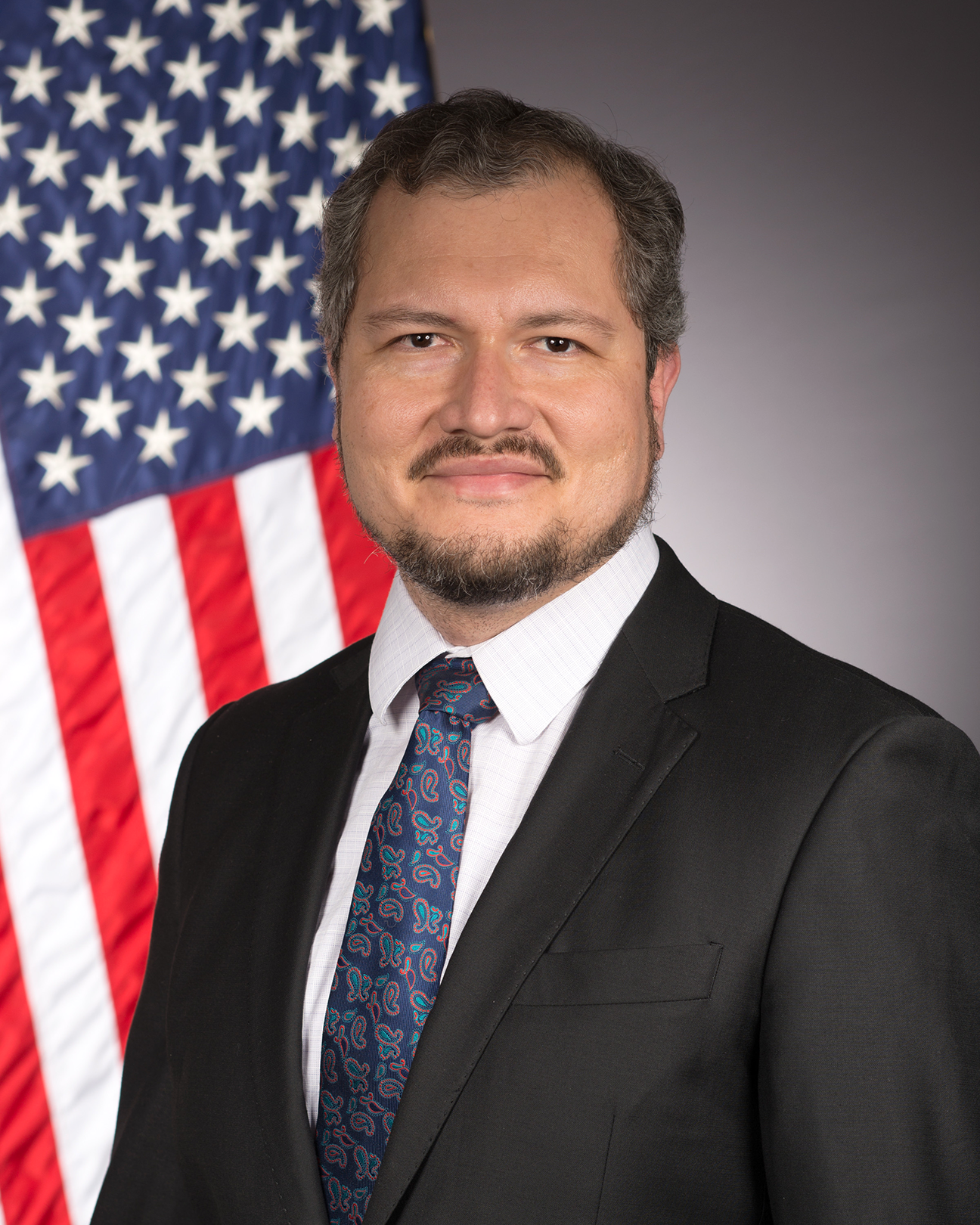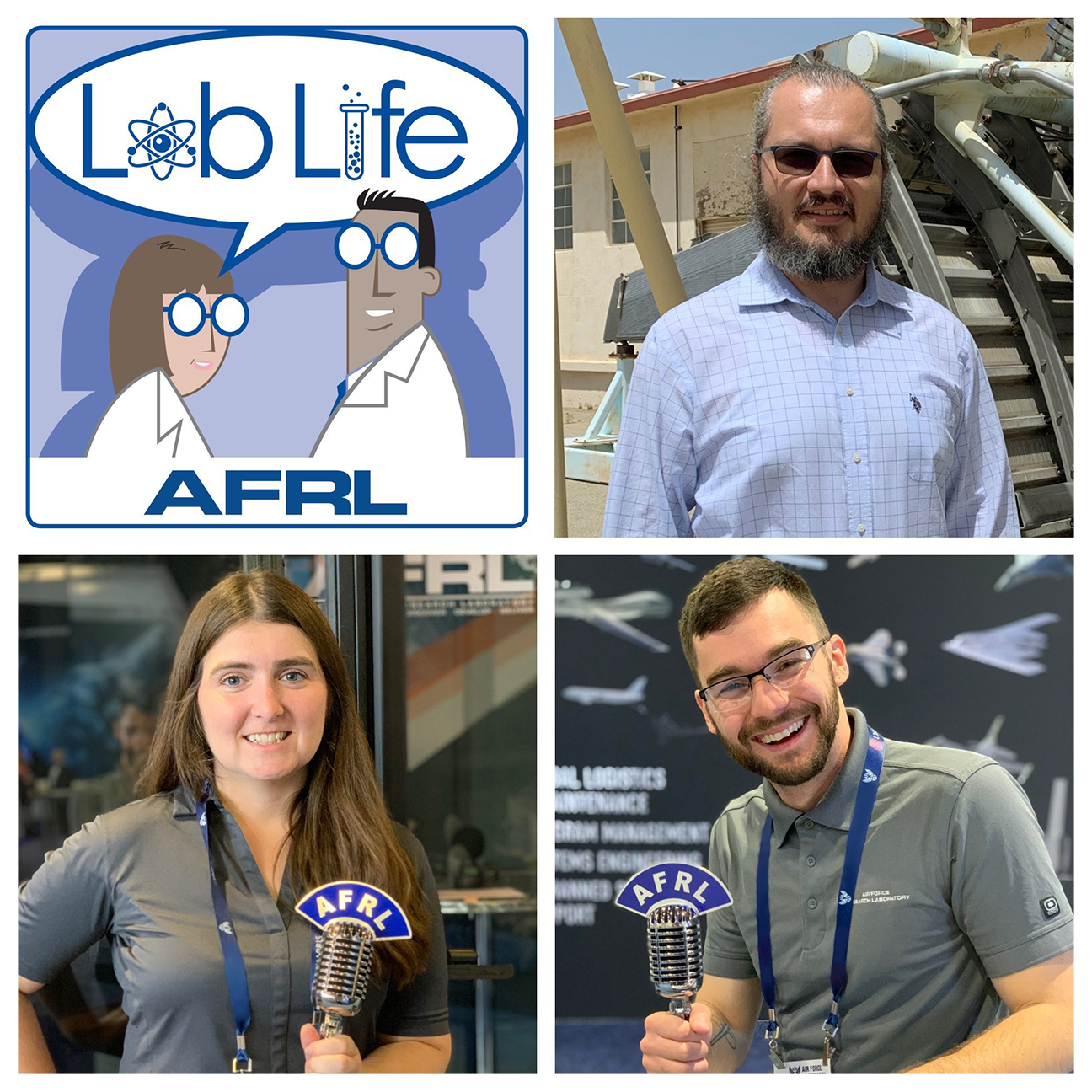Latest Lab Life podcast launches with AFRL rocket man
WRIGHT PATTERSON AIR FORCE BASE, Ohio (AFRL) — You don’t have to be a rocket scientist to go on Air Force Research Laboratory’s “Lab Life” podcast, but it does make for good conversation when one shows up.
Especially when the guest is Nils Sedano, a rocket engineer and go-to historian type for the Lab who is comfortable switching gears from older subjects like Apollo and Saturn V to the latest-and-greatest topics like SpaceX’s Starship-Superheavy.
Sedano is a technical adviser in the liquid engines branch of the lab’s rocket propulsion division, part of AFRL’s Aerospace Systems Directorate at Edwards Air Force Base, California. He’s also a rocket trivia buff, something the “Lab Life” hosts quickly put to test in the podcast’s latest release.
First stop was the famed F-1 engine that powered the Apollo space program. It is the most powerful single combustion chamber liquid-propellant rocket engine ever developed, much thanks to AFRL testing.
“You could say the F-1 was developed at Edwards,” Sedano said. “We blew up lots and lots of them.”
Years later, Sedano followed, it was AFRL testing that showed a new rocket engine design was viable to power NASA’s space shuttle program.
“Those engines were an evolution of an AFRL engine,” Sedano said. “NASA would not have picked up the technology…if AFRL had not proven them out, to say ‘Hey, this works.’”
Fast forwarding to today’s space scene, Sedano credited AFRL research again for pushing the limits and breaking the boundaries for both government and private enterprise. The Raptor engine that powers SpaceX’s self-landing rockets, for example, is a direct descendant of AFRL technology.
The lab tested a demonstrator engine that would become Raptor’s ancestor in 2006, when Elon Musk’s SpaceX was in its infancy. Several years after AFRL closed the program, Sedano said, SpaceX came knocking.
“We still had the hardware. We still had the drawings. We still had the data,” he said. “We were able to transfer all that to SpaceX … (They) were able to know that the technology would … work, as well as maybe get a few years ahead in their development.”
The resulting return on the taxpayers’ investment in the AFRL research adopted for Raptor is at least tenfold, Sedano argued. SpaceX is now a key U.S. Space Force partner.
“SpaceX being able to do something quicker and cheaper means that the government is able to obtain that quicker and cheaper,” he said.
To Sedano, AFRL is where the future gets tested. It’s where tip-of-the-spear concepts like aerospike engines are approached with a hard-to-find, push-the-envelope attitude. AFRL at Edwards is where “you work on stuff that you don’t know where it is going to end up,” he said. “You don’t know whether it will succeed. You don’t know if it’s just going to crash and burn.”
That willingness to fail is what makes AFRL different. It’s what got Apollo off the ground and space shuttles into orbit, and it’s why Sedano is so optimistic about tomorrow.
“We don’t launch rockets quickly today,” he said. “We want to in the future, and I think we’re making great strides and industry is making great strides in that area, but there’s still a lot of research to find the art of the possible.”
For those interested in listening to the full episode, this “Lab Life” podcast is available on multiple platforms.
Stream or download at the Defense Visual Information Distribution Service website at:
https://www.dvidshub.net/audio/69198/lab-life-episode-65-rocketing-through-history
Stream through the Air Force Materiel Command mobile app on AF Connect.
Lab Life on Apple podcasts is available here: https://itunes.apple.com/us/podcast/id1455263736
Listen on Stitcher by visiting: https://www.stitcher.com/show/lab-life/episode/lab-life-episode-65-rocketing-through-history-203142817
Be sure to follow AFRL on social media at Facebook, Twitter, LinkedIn, Instagram and YouTube @afresearchlab.
About AFRL
The Air Force Research Laboratory (AFRL) is the primary scientific research and development center for the Department of the Air Force. AFRL plays an integral role in leading the discovery, development, and integration of affordable warfighting technologies for our air, space, and cyberspace force. With a workforce of more than 11,500 across nine technology areas and 40 other operations across the globe, AFRL provides a diverse portfolio of science and technology ranging from fundamental to advanced research and technology development. For more information, visit: www.afresearchlab.com.

Nils Sedano, technical advisor in the liquid engines branch of the Air Force Research Laboratory’s rocket propulsion division at Edwards Air Force Base, California, is the latest guest on AFRL’s “Lab Life” podcast.

The latest episode of the Air Force Research Laboratory’s “Lab Life” podcast features Nils Sedano, a technical advisor in the liquid engines branch of the Laboratory’s rocket propulsion division at Edwards Air Force Base, California. Sedano’s discussion with hosts Michele Miller and Kenneth McNulty covered the history and future of AFRL’s rocket development.
